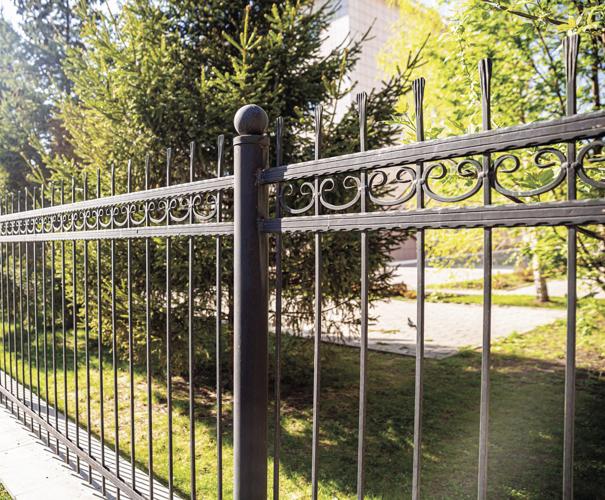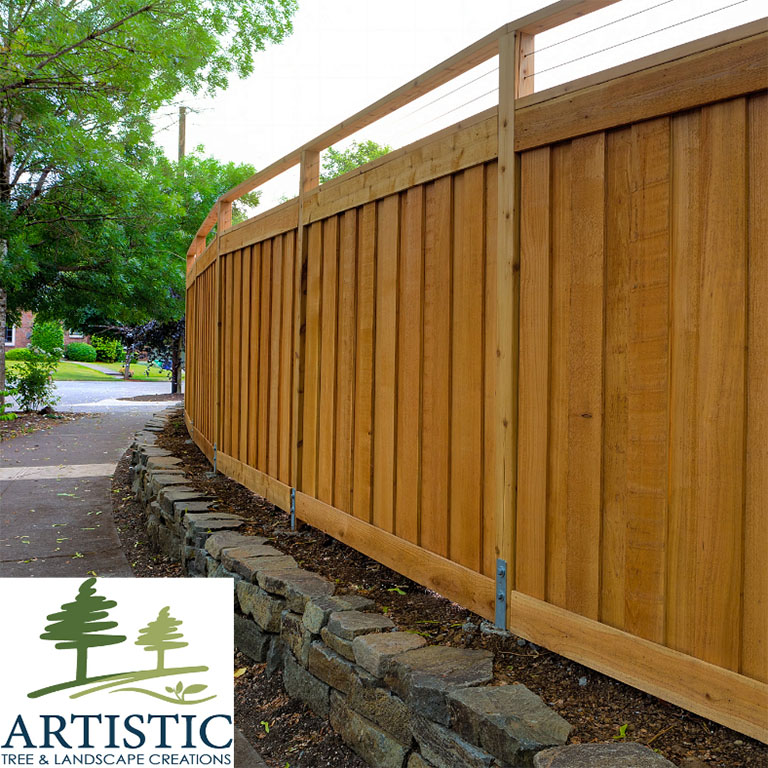All Categories
Featured

When setting up a fencing, picking the right material is crucial to stabilizing functionality, aesthetic appeals, and spending plan. Timber, plastic, and light weight aluminum are amongst the most generally picked secure fencing materials, each with its staminas and downsides. This guide discovers the benefits and drawbacks of these choices to assist you make an educated decision.

Timber Fencing. Pros:. All-natural Beauty: Timber's ageless beauty can enhance any property with its cozy and traditional appearance. Personalized: You can paint, stain, or carve wood to fit your style preferences. Cost effective: Wood fencing is originally a lot more affordable contrasted to a few other products. Eco-friendly: As a renewable energy, wood is biodegradable and frequently thought about eco-friendly. Cons:. Maintenance-Intensive: Routine sealing, paint, or discoloration is called for to stop damage from climate and insects. Prone to Decay: Without appropriate treatment, wood can rot, warp, or split gradually. Much shorter Life-span: Typically, wood fencings last 10-15 years, relying on the sort of wood and maintenance. Timber is an excellent alternative for those that value visual appeals and agree to spend in routine maintenance to preserve its look and toughness.
Plastic Secure Fencing. Pros:. Reduced Upkeep: Vinyl needs minimal treatment-- just occasional cleaning with soap and water. Climate Resistant: It does not warp, rot, or catch insect damages, making it very sturdy in different climates. Durability: Plastic fences can last 20-30 years with little to no fixings. Layout Selection: Available in a wide variety of styles, appearances, and colors, consisting of wood-like looks. Disadvantages:. Greater Preliminary Price: Vinyl fences are extra expensive in advance contrasted to wood. Vulnerability to Cold: In very winter, plastic can end up being vulnerable and weak to splitting. Limited Repair Service Options: Matching replacement panels can be testing if damages occurs. Vinyl fence is perfect for property owners looking for a lasting, low-maintenance remedy that offers modern-day convenience.

Light Weight Aluminum Secure Fencing. Pros:. Rust-Proof: Light weight aluminum resists corrosion, making it an excellent choice for damp or moist atmospheres. Sturdy: In spite of being lightweight, aluminum is strong and can withstand extreme weather. Reduced Upkeep: It calls for marginal maintenance, generally just occasional cleaning. Long Lifespan: Aluminum fencings can last decades without considerable wear and tear. Sophisticated Style: Frequently made use of for decorative purposes, light weight aluminum fencing includes a sleek, innovative aim to buildings. Cons:. High Preliminary Financial investment: Light weight aluminum fencings are amongst the costlier options on the marketplace. Less Personal privacy: The open designs usual with light weight aluminum fence don't supply much personal privacy. Prone to Damage: While resilient, aluminum can dent if hit with sufficient force. Aluminum is an exceptional choice for homeowners focusing on looks and durability without needing much upkeep.
Making Your Choice. When determining in between plastic, wood, or light weight aluminum fence, consider your priorities:
Timber matches those who value an all-natural appearance and don't mind placing in upkeep initiative. Vinyl is the best option for those looking for a low-maintenance, weather-resistant option. Light weight aluminum supplies streamlined style and lasting durability yet might lack personal privacy. By meticulously examining these products' features, you can select a fence that matches your building while satisfying your functional and visual needs.
Latest Posts
Explore Limited-Time Auto Repair Deals in Chicago at Montclare Auto Repair
Published en
1 min read
Find Brake Repair & More: Comprehensive Repair Options from Montclare Auto Repair
Published en
1 min read
Learn How to Reduce Expenses on Car Maintenance with Montclare Auto Repair’s Special Deals
Published en
1 min read
More
Latest Posts
Explore Limited-Time Auto Repair Deals in Chicago at Montclare Auto Repair
Published May 26, 25
1 min read
Find Brake Repair & More: Comprehensive Repair Options from Montclare Auto Repair
Published May 26, 25
1 min read
Learn How to Reduce Expenses on Car Maintenance with Montclare Auto Repair’s Special Deals
Published May 25, 25
1 min read